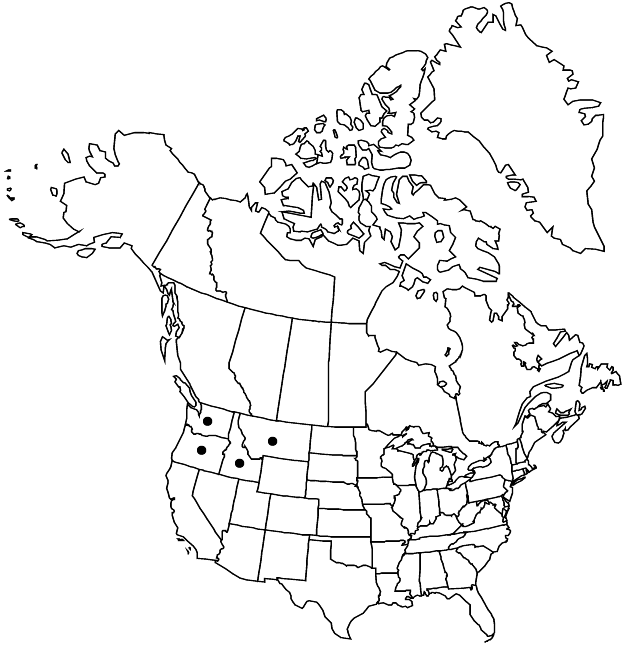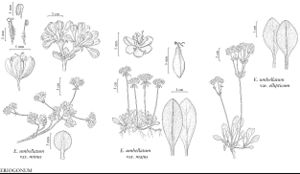Difference between revisions of "Eriogonum umbellatum var. ellipticum"
Taxon 32: 294. 1983.
FNA>Volume Importer |
FNA>Volume Importer |
(No difference)
| |
Revision as of 22:37, 16 December 2019
Herbs, often rather compact mats, 1–3.5 × 2–5 dm. Aerial flowering stems erect, 0.7–2(–3) dm, thinly floccose or glabrous, without one or more leaflike bracts ca. midlength. Leaves in loose rosettes; blade usually elliptic, 1.5–3(–4) × 1–1.5 cm, tomentose abaxially, usually glabrous adaxially, margins plane. Inflorescences compound-umbellate, branched 2–4 times; branches thinly floccose or glabrous, without a whorl of bracts ca. midlength; involucral tubes 2–4 mm, lobes 2–4 mm. Flowers 6–8 mm; perianth bright yellow.
Phenology: Flowering Jun–Sep.
Habitat: Sandy to gravelly flats and slopes, mixed grassland and sagebrush communities, montane conifer woodlands
Elevation: 700-2400 m
Distribution

Idaho, Mont., Oreg., Wash.
Discussion
Variety ellipticum is widely scattered but locally common in the mountains of the Pacific Northwest. It has long been known as var. stellatum, the name being altered to var. ellipticum only for technical nomenclatural reasons. This is the northern phase of the species, with compound inflorescences. Considerable variation in plant size is retained within the circumscription adopted here. Plants from northeastern Oregon and adjacent west-central Idaho are large and showy, and it is this phase (called Eriogonum croceum or E. umbellatum var. chrysanthum) that occasionally is seen in cultivation.
Selected References
None.
